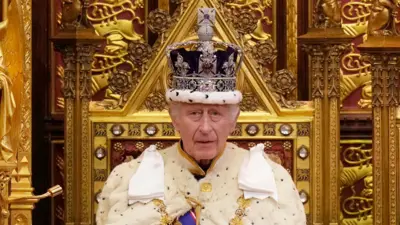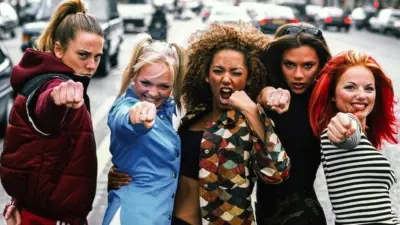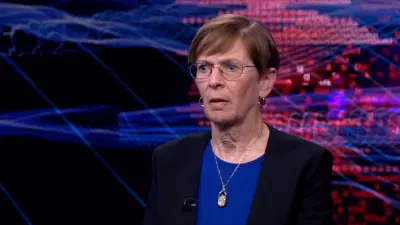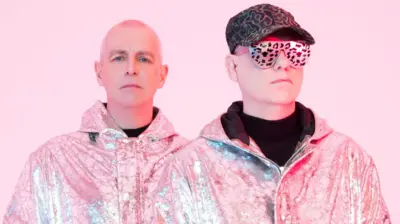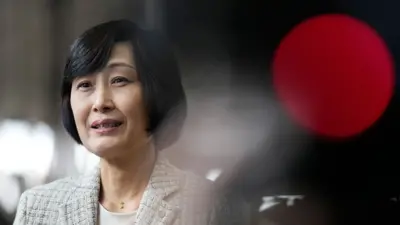We've updated our Privacy and Cookies Policy
We've made some important changes to our Privacy and Cookies Policy and we want you to know what this means for you and your data.
Fair and Lovely: Can renaming a fairness cream stop colourism?
- By Geeta Pandey
- BBC News, Delhi
Image source, Getty Images
Consumer giant Unilever says it will rebrand its bestselling skin lightening cream Fair and Lovely and drop the word "fair" from its name. While the news has been welcomed, campaigners say the move doesn't go far enough - and in India demand for such products shows no sign of waning.
Unilever and its Indian subsidiary Hindustan Unilever Limited (HUL) have been criticised extensively for promoting colourism and making girls with darker shades feel insecure and inadequate.
Pressure had been mounting since last week when US multinational Johnson and Johnson announced it would no longer produce or sell two of its creams which are popular in Asia and the Middle East in response to the death of George Floyd and the worldwide debate about racism it sparked.
"Conversations over the past few weeks highlighted that some product names or claims on our Neutrogena and Clean & Clear dark-spot reducer products represent fairness or white as better than your own unique skin tone," Johnson and Johnson said in a statement. "This was never our intention - healthy skin is beautiful skin."
Fair and Lovely is India's largest selling skin lightening cream, with 24bn rupees ($317m; £256m) in annual revenue.
Ever since the 1970s when it first hit the market, millions of tubes are bought every year by teenagers and young women in a country where lighter skin is routinely equated with beauty.
Top Bollywood actors and actresses have appeared in advertisements to endorse Fair and Lovely that promote fair skin as a means to finding love or a glamorous job.
On Thursday morning, Fair & Lovely trended high on Twitter in India with hundreds demanding a ban on its advertising and sale.
In the past two weeks, at least three change.org petitions have come up globally, asking Unilever to banish the cream from markets in Asia and Asian stores in the West.
Image source, Getty Images
One said this product "built upon, perpetuated and benefited from internalized racism and promotes anti-blackness sentiments amongst all its consumers".
On Thursday afternoon, Unilever decided to act saying that "a new name has been chosen for the cream and is awaiting regulatory approvals".
"We recognise that the use of the words 'fair', 'white' and 'light' suggest a singular ideal of beauty that we don't think is right, and we want to address this," the company said in a statement.
It added that they were working to make their skin care portfolio "more inclusive" and "want to lead the celebration of a more diverse portrayal of beauty".
In the past few years, they said they had already made some changes - such as removing a shade card from the packaging and no longer doing before and after comparisons of skin tones in their advertisements.
They also promised to "feature women of different skin tones, representative of the variety of beauty across India and other countries" in their future campaigns.
'It's still fairness cream no matter what they call it'
While many rejoiced over the announcement, describing it as historic and a huge victory, others pointed out that it was old wine in a new bottle as the company was still going to sell the same cream with the same ingredients, but with a new name.
Chandana Hiran, who authored one of the petitions, told the BBC the Unilever announcement was "a path-breaking decision" but was only "a first step towards inclusivity".
"While I am glad that they're willing to change the narrative, I really want them to relook at their product in its essence. It's still fairness cream no matter what they call it."
So, the important question is - is a name change enough to change perceptions about skin colour that have been held and perpetuated over centuries?
In recent years, campaigns such as Dark is Beautiful and #unfairandlovely have questioned Indian's obsession with fair skin.
Increasingly, urban-educated women on social media have called out Bollywood stars and popular beauty pageants for promoting colourism.
But the campaigns have had very limited impact, they have not dented the popularity or the market for fairness products, with the demand continuing to rise.
That explains why last week's announcement by Johnson and Johnson to withdraw its fairness products had some people in Asia saying if they wanted to buy them, they should be allowed to.
On social media some even said this was a form of discrimination against their communities.
And I know that in many parts of India too, the unavailability of Fair and Lovely is going to be greeted with distress - a large number of customers are in small town and rural India and unaware of the politics over skin colour and the Black Lives Matter movement that's raging in the West.
And they would embrace Fair and Lovely's substitute whatever it's called.
Top Stories
Features & Analysis
Most read
Content is not available

